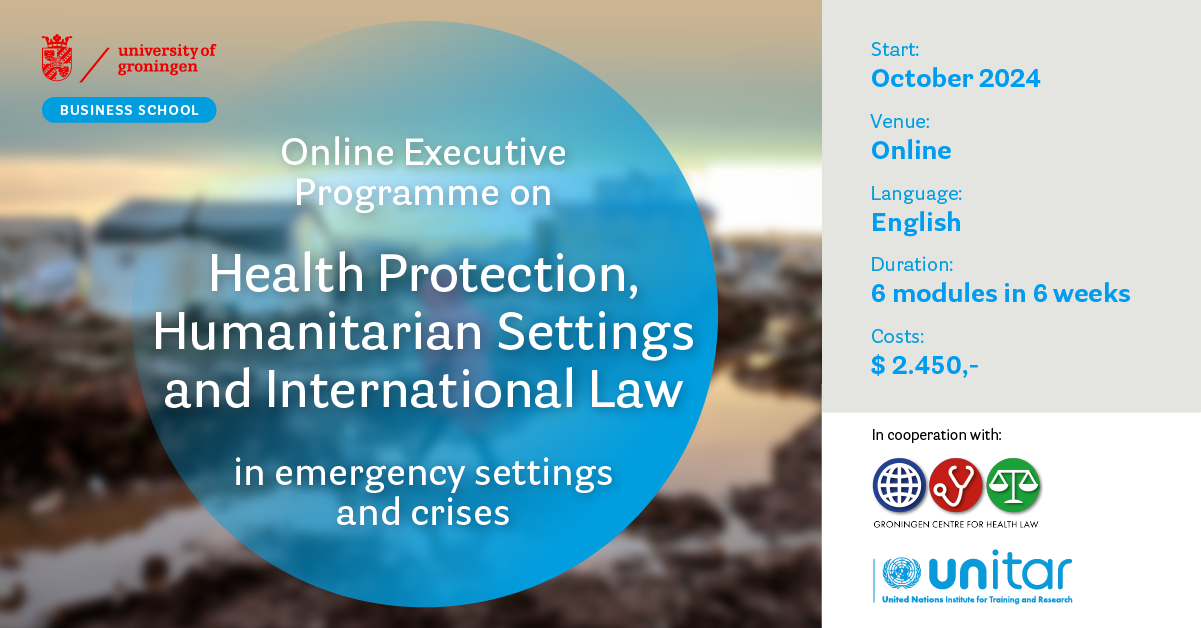Online course Health Protection, Humanitarian Settings and International Law
The provision of health services becomes increasingly challenging in humanitarian emergencies and crises. Preventing and controlling spread of disease and injuries, along with ensuring access to medical and health facilities to affected populations in such settings meets with specific challenges. Societal or political instability significantly disrupts the enjoyment of the right to health as well as the ability of medical personnel and facilities to provide health services.
- Course Fee: $2.450,- USD
- Language: English
- Programme period: 24 October 2024 - 28 November 2024 (6 weeks on Thursdays)
- Application: please request the application form here
Are you a professional working in the medical, public health, humanitarian sector or related fields and are you interested in healthcare and crisis settings? The University of Groningen’s Groningen Centre of Health Law of the Faculty of Law, Groningen Business School (UGBS) and the United Nations Institute for Training and Research (UNITAR) have created an online executive programme that will provide insights into the international legal dimensions of governing access to health services, especially in emergency settings and crises.
This Executive Programme offers a roadmap for healthcare provision in emergency settings, equipping participants with the tools needed to navigate challenging emergency situations and the knowledge to better understand the protective international laws in place in such settings.
We will expand your knowledge on the factors that affect the protection of health in humanitarian settings. You will receive a holistic understanding of international health law in different humanitarian settings, including armed conflicts and disasters, and as viewed from different legal regimes, such as international human rights law and international humanitarian law, as well as knowledge on development and policy for healthcare and medical institutions post-crisis.


